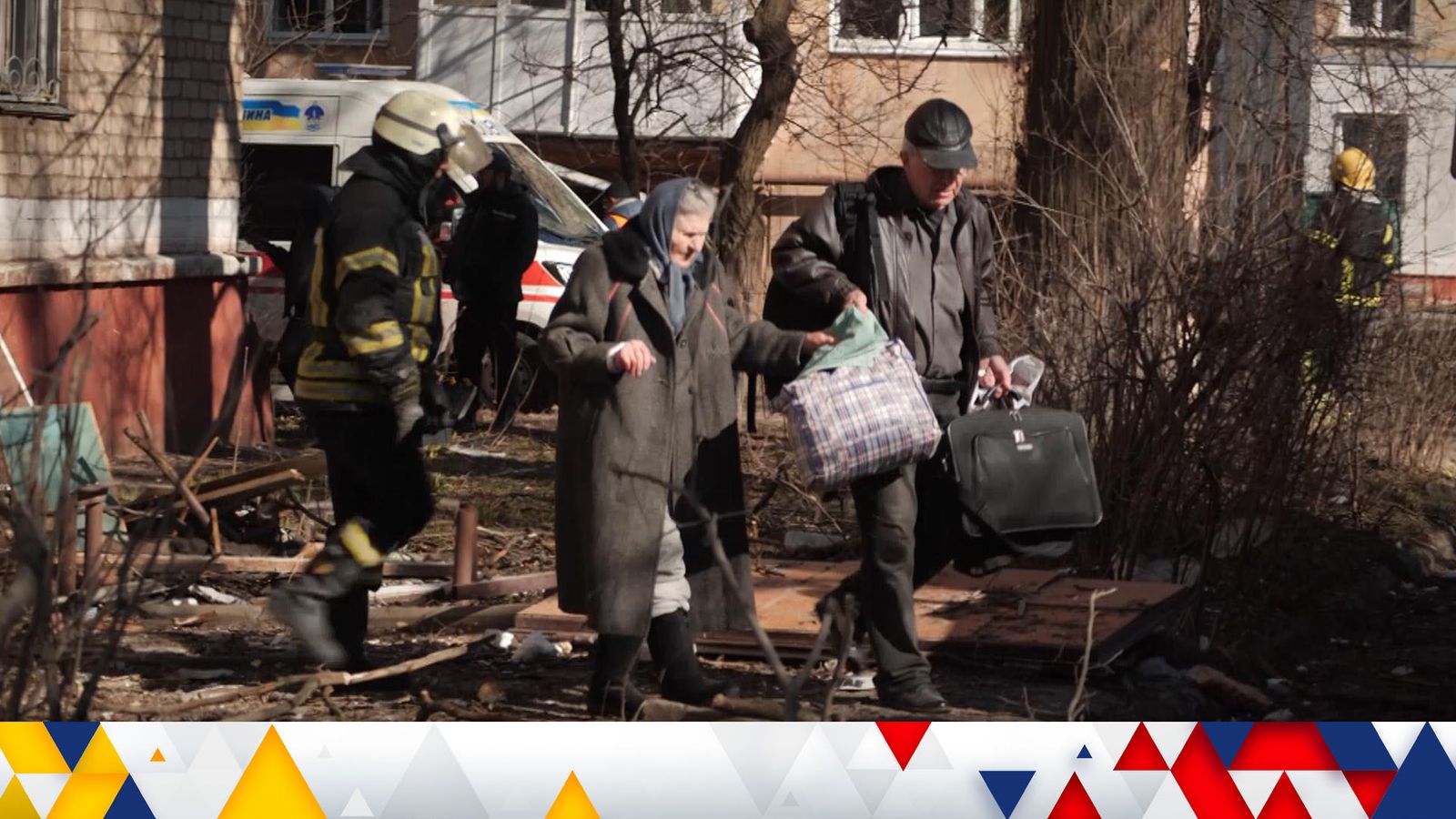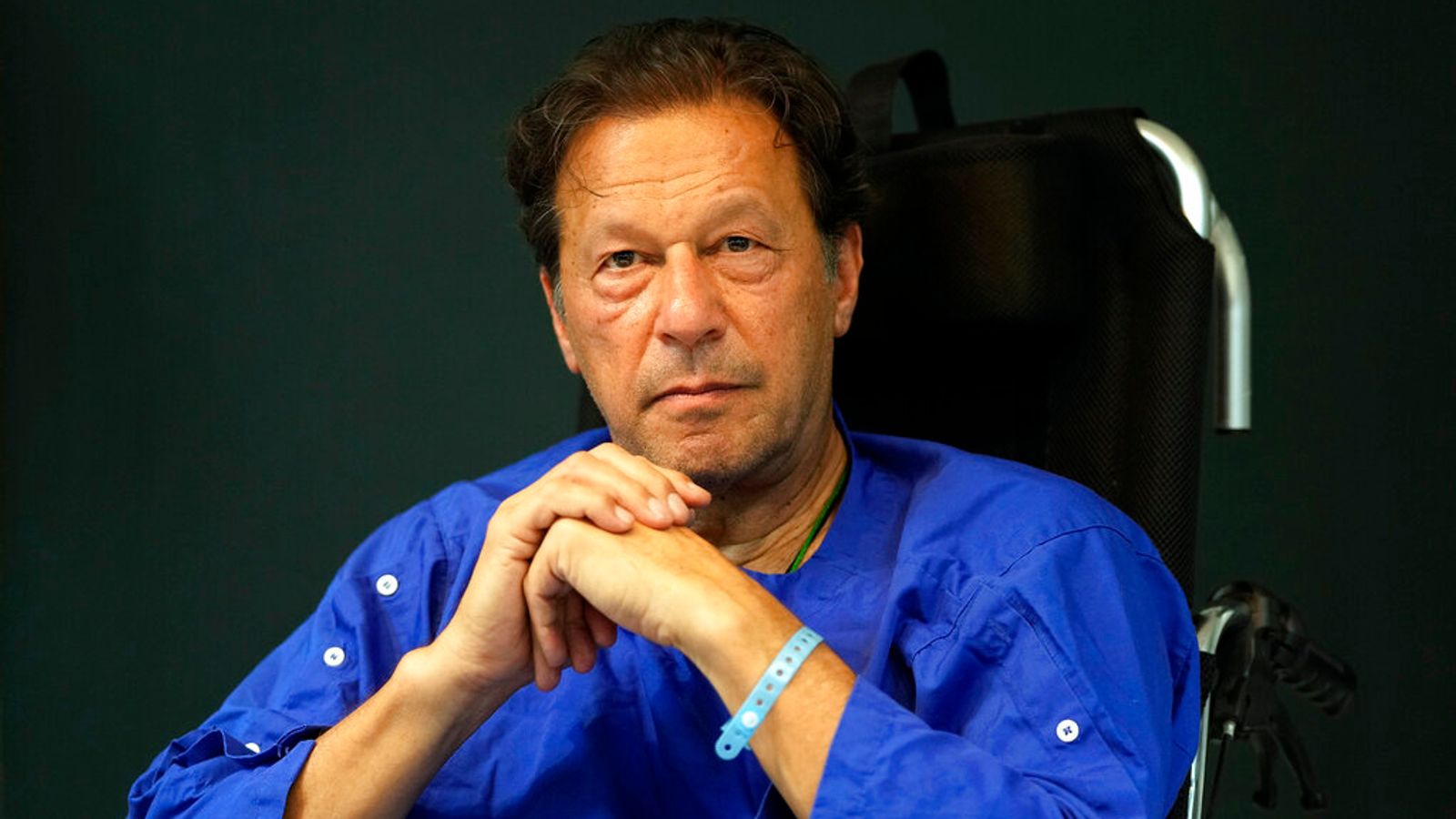There’s an eerie sense of foreboding in the villages, towns, and cities of eastern Ukraine – especially those within firing distance of Russian artillery, and the fighting in the nearby city of Bakhmut.
At breakfast time we were startled by the sound of an explosion near where we are staying in Kramatorsk.
A residential neighbourhood had been hit by a Russian missile, at least one person died.
Whole apartments had been destroyed and as the emergency services started rescuing the injured, survivors picked through the ruins looking for belongings.
The contents of their home were strewn across the road, along with glass and debris from the explosion.
US drone crashes over Black Sea – follow Ukraine war live updates
The elderly and most vulnerable were slowly helped from the battered buildings as medics moved in to dress their wounds and inspect injuries.
We watched on as a medic dressed an elderly resident’s nastily burnt hands.
Even as we filmed the air raid sirens started again.
Kramatorsk has been hit many times, but it’s no less of a shock each time for those still living here.
“I was sitting on the couch at home talking to my daughter on the phone, when suddenly dust and debris flew into me. I didn’t hear anything else, and I don’t want to hear anything more. B******s!”, one woman shouted at our camera.
About 12kms (7.5 miles) back from the Bakhmut frontline is Konstantinovka.
People still live here among the many ruined apartment blocks, schools, and government buildings, but there is no quiet.
The Ukrainians resupply their troops from here.
The main route back to Bakhmut has been lost to the Russians, so enormous tanks, trucks, armoured personnel carriers and ambulances rumble through residential backstreets to obscure single lane roads that allow them some safety on their way further east.
The boom of outgoing Ukrainian artillery is a constant, sometimes the equally distinctive sound of incoming rounds makes visitors like me look up and readjust my body armour and helmet.
Groups of soldiers, some going in, and some coming out of Bakhmut stop at a few petrol stations that are still open to drink coffee, and chat to comrades.
Read more:
Russian jets dumped fuel in front of US drone before crash
PM warns of world defined by danger
A team of soldiers pull up in a battered pickup and are greeted with hugs by a group of volunteer medics who have brought them some supplies.
The soldiers have just left the fighting in Bakhmut, and they busily start transferring boxes of food and medicine into their vehicle.
I ask what it is like inside, and the answer is simple: it’s hard and they need more of everything.
“It is really difficult, we need more of everything we can get, because it’s really hard now there, but we are holding on,” a soldier named Ivan told me.
“That’s it, what more can I say?”
More of everything includes modern Western weapons of course.
More is coming but the sense I got from what I could see of the equipment on show just a few miles from the front is that it can’t come soon enough.
I asked another soldier, Oleksandr, whose battalion has just arrived from a distant part of the country, if he was confident of a victory.
His answer was revealingly honest. “I think it’s 30 to 70 in our favour that we will win this fight for Bakhmut.”
He confirmed Russia has many soldiers on the battlefield, too.
“Russia has a lot of soldiers there, but they are taking a lot more losses than we are, much more.”
President Zelenskyy has said the defence of the east and the relief of Bakhmut is a priority for Ukraine.
Some military analysts disagree, but he has said in no uncertain terms that the fight for Ukraine will be won or lost in the east.
Rightly or wrongly, he says now is one of the most important periods of the war so far.
Stuart Ramsay reports from eastern Ukraine with camera operator Toby Nash, and producers Dominique Van Heerden, Artem Lysak, and Nick Davenport.










